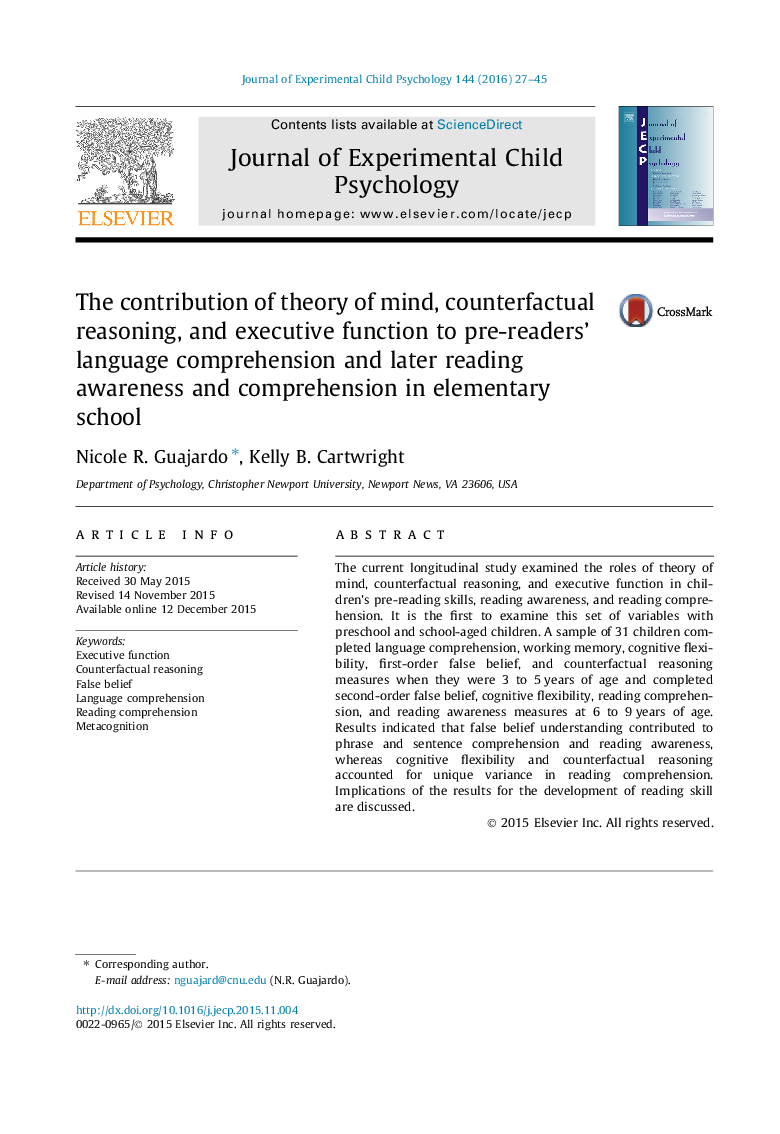| Article ID | Journal | Published Year | Pages | File Type |
|---|---|---|---|---|
| 917864 | Journal of Experimental Child Psychology | 2016 | 19 Pages |
•Preschool false belief understanding contributed to language comprehension.•Early and later false belief predicted reading awareness in middle childhood.•Second-order false belief accounted for unique variance in reading awareness.•Early and later cognitive flexibility uniquely predicted reading comprehension.•Early counterfactual reasoning uniquely predicted reading comprehension.
The current longitudinal study examined the roles of theory of mind, counterfactual reasoning, and executive function in children’s pre-reading skills, reading awareness, and reading comprehension. It is the first to examine this set of variables with preschool and school-aged children. A sample of 31 children completed language comprehension, working memory, cognitive flexibility, first-order false belief, and counterfactual reasoning measures when they were 3 to 5 years of age and completed second-order false belief, cognitive flexibility, reading comprehension, and reading awareness measures at 6 to 9 years of age. Results indicated that false belief understanding contributed to phrase and sentence comprehension and reading awareness, whereas cognitive flexibility and counterfactual reasoning accounted for unique variance in reading comprehension. Implications of the results for the development of reading skill are discussed.
